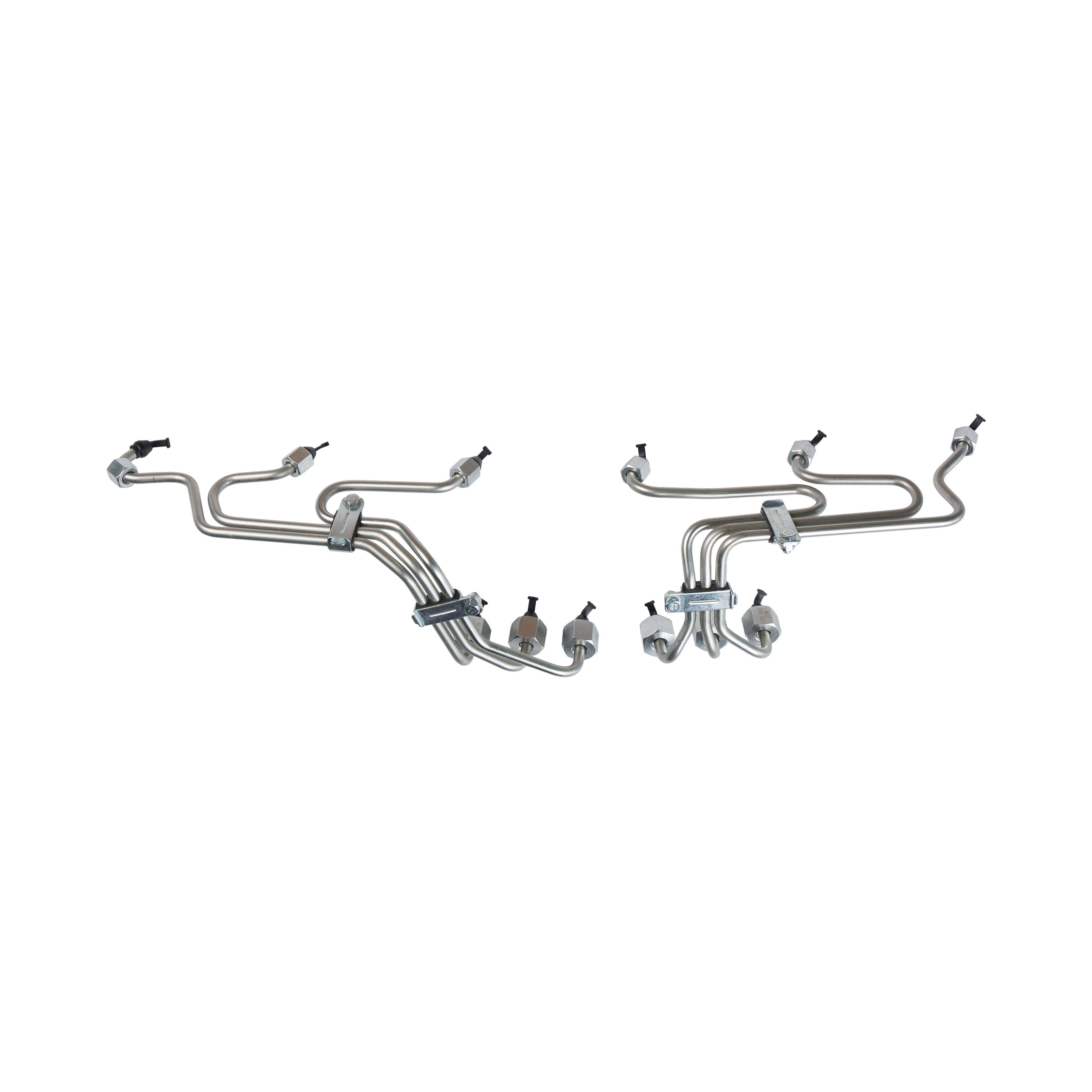Oil pipes are crucial for a car's engine performance for several reasons, primarily related to the lubrication and cooling of engine components. Here are the key reasons why oil pipes are essential:
1. Lubrication
Reduction of Friction: Oil pipes transport engine oil to various moving parts within the engine, such as pistons, camshafts, and crankshafts. This oil lubricates these parts, reducing friction and preventing wear and tear.
Smooth Operation: Proper lubrication ensures that engine components move smoothly and efficiently, contributing to the overall performance and longevity of the engine.
2. Cooling
Heat Dissipation: As engine oil circulates through the engine, it absorbs heat generated by combustion and friction. Oil pipes help transport this heated oil to the oil cooler or oil pan, where it can dissipate the heat, thereby preventing the engine from overheating.
Temperature Regulation: Maintaining an optimal engine temperature is critical for efficient performance and preventing damage to engine components.

3. Cleaning and Debris Removal
Contaminant Transport: Engine oil picks up dirt, metal particles, and other contaminants as it circulates through the engine. Oil pipes carry this oil to the oil filter, where contaminants are removed, ensuring that clean oil is delivered back to the engine components.
Preventing Buildup: By continuously removing contaminants, oil pipes help prevent the buildup of sludge and deposits within the engine, which can hinder performance and cause damage.
4. Hydraulic Function
Hydraulic Systems: Some components within the engine, such as hydraulic lifters and variable valve timing systems, rely on engine oil for proper operation. Oil pipes deliver the necessary oil pressure to these systems, ensuring they function correctly and contribute to overall engine performance.
5. Component Protection
Wear and Tear Prevention: By ensuring consistent and adequate lubrication, oil pipes protect engine components from excessive wear and tear, which can lead to premature failure and costly repairs.
Corrosion Protection: Engine oil contains additives that help protect metal surfaces from corrosion. Oil pipes ensure that these protective additives are distributed throughout the engine.
6. Pressure Maintenance
Consistent Oil Pressure: Oil pipes help maintain the correct oil pressure within the engine. Adequate oil pressure is essential for ensuring that all engine components receive the necessary lubrication and cooling.
Preventing Engine Damage: Low oil pressure can lead to inadequate lubrication, causing engine components to overheat and seize, leading to significant engine damage.
Oil pipes are vital for the efficient and reliable performance of a car's engine. They play a crucial role in lubricating, cooling, cleaning, and protecting engine components, ensuring that the engine operates smoothly and efficiently. Regular maintenance and inspection of oil pipes are essential to prevent issues such as leaks or blockages, which can compromise engine performance and lead to costly repairs.

 English
English Español
Español русский
русский












